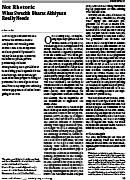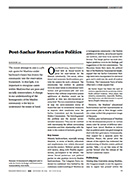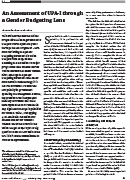India's Tax System - Increasing Progressivity
We all pay taxes to the government in some form or the other in our daily lives. These taxes we pay play an important role in financing different functions that the government performs. There are many responsibilities that the government is required to fulfil. These include ensuring the rule of law; providing public goods and services; building physical and social infrastructure; investing in education of the population; alleviating poverty, etc. Clearly, the government needs to mobilise a significant amount of financial resources in order to fulfil its many commitments. The government mobilises financial resources for funding its different activities mainly through taxes, user fees/ service charges and borrowings. The sources of funds which neither create liabilities nor reduce assets are called revenue receipts. Other sources of funds such as borrowings which create liabilities or those that reduce assets (e.g. disinvestment) are called capital receipts. Thus, taxes and user fees/service charges are some examples of revenue receipts of the government while borrowings are capital receipts.















































